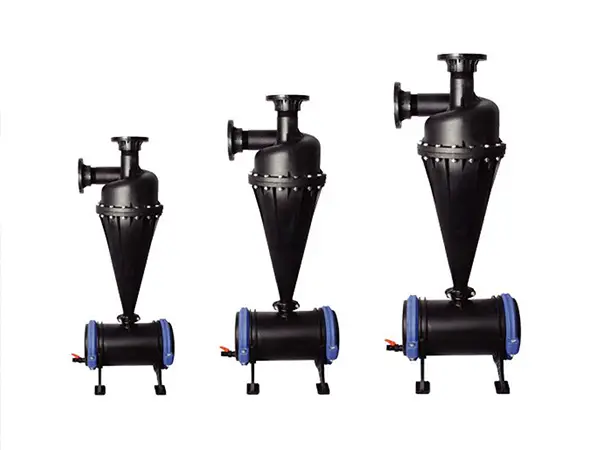
Centrifugal Filter
Irrigation filters are key components in agricultural irrigation for enhancing irrigation efficiency. They can remove impurities, particles, and sediments from the water source, ensuring clean and stable irrigation water quality. This not only protects the irrigation system from clogging and damage but also effectively reduces the maintenance needs of irrigation equipment.
In a complete irrigation system, there are usually primary filters and precision filters. Primary filters can remove larger impurities, protecting the precision filters, allowing them to focus on filtering small particles, reducing clogging issues, and improving the stability and efficiency of system operation.
The primary filter is usually located at the entrance of the irrigation system. It has a lower filter rating and is mainly used for coarse filtration of the water source, removing larger particles and impurities to ensure that large particles in the water source do not enter the subsequent irrigation system. In environments where the water source is relatively clean, with fewer particles and not too many fine impurities (such as cleaner well water or river water), the primary filter can be used alone.
The precision filter has a higher filter rating and is used for further fine filtration of the water source, removing smaller impurities such as suspended solids, silt, algae, and tiny organic matter to ensure the water quality meets the requirements of irrigation equipment. It is particularly suitable for drip and sprinkler irrigation systems that have higher water quality requirements. In a complete irrigation system, a primary filter is usually used first to remove larger particles, followed by a precision filter to further remove smaller particles and impurities.